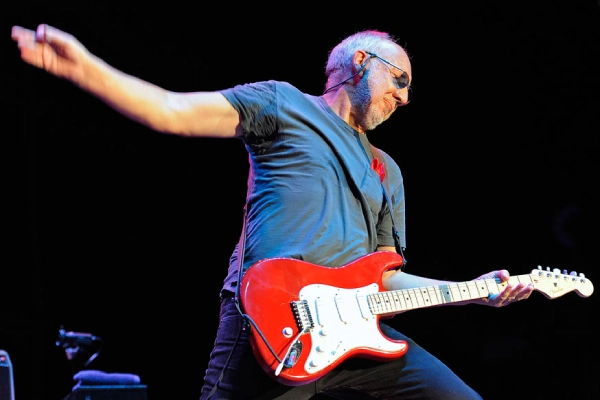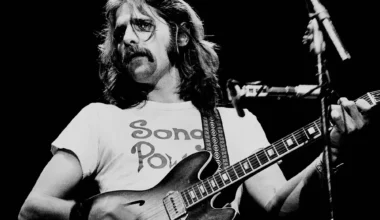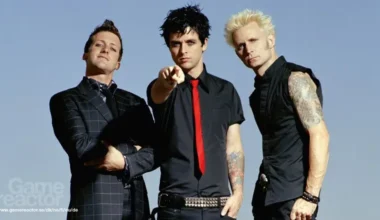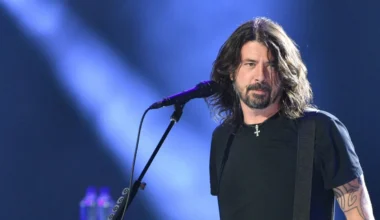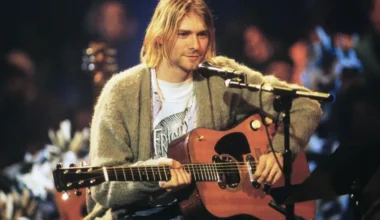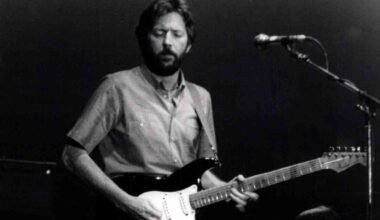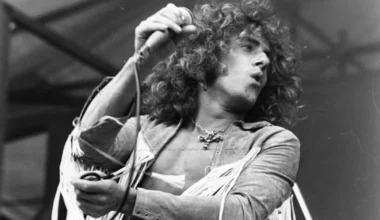Nowadays, punk seems like a weak term. It’s widely used to characterise any music that has a slightly gritty edge. Or perhaps the term “post-punk” is becoming overused to the point where it is being used as a synonym for terms that people aren’t quite sure how to define. Punk, though, had significance back then. “Punk” connoted something ominous to Pete Townshend.
The wild guitarist for The Who met with Rolling Stone in 1980 to discuss the scene. It was also a peculiar time. As a movement, punk seemed to burn bright and fast like a ball of societal rage, and to end almost as quickly as it began. In the UK, bands like The Clash and Sex Pistols emerged as direct responses to the nation’s social and political atmosphere. Their lyrics targeted authority figures, reflecting the times they lived in.
“What immediately strikes you is that this is actually happening when you listen to the Sex Pistols, to tracks like ‘Anarchy in the U.K.’ and ‘Bodies,'” Townshend remarked. In a similar vein, the band’s breakthrough single, “God Save the Queen,” was a targeted assault that was released in honour of the Queen’s Silver Jubilee. To put it briefly, these were protest songs with a very real message that were based in genuine rage. The lyrics addressed a variety of topics, including fascism, poverty, austerity, and access to or lack of health care. The characters in the songs were representations of actual people. The band and their early fans resided in a world that dissatisfied them.
Townshend praised Johnny Rotten, saying, “This is a bloke, with a brain on his shoulders, who is actually saying something he sincerely believes is happening in the world, saying it with real venom, and real passion.” That was the very thing that made punk so terrifying—the song’s explosive energy, driven by real rage.
Regarding the genre, he remarked, “It touches you, and it scares you—it makes you feel uncomfortable.” That was the essence of punk in its purest and most early forms. Punk was also about stating things bluntly, addressing injustice with rightful fury. It embraced a subculture with unique aesthetics and fashion.
Punk didn’t emerge solely for a catchy chorus or to placate or make things easier to take. Pete Townshend said, “That’s one of the reasons: a lot of new music is harder to listen to.” He saw more than just Sex Pistols as a part of this audacious and terrifying wave.
He gave credit to two other bands for the wave of realistic punk messaging that permeated the radio. And he continued, “You read the fucking words, they scare the shit out of you. You get a band like the Clash, and they come out with a nifty little song like ‘Clampdown,’ and you can’t hear the words, and they’ll play it on the radio in L.A.”
He held a similar view about another figure from the early punk scene, near the Sex Pistols. They evidently stuck to the original aim of speaking uncomfortable truths. “The Pretenders—Chrissie Hynde has a lovely voice, but on her most recent record, she talks about getting laid by Hell’s Angels! She writes in double-speak! & raped,” he declared. That is, in his opinion, why Hynde is so important. He praised the writer highly, saying, “The words are full of the most brutal head-on feminism that has also ever come out of any band, anywhere!”
Pete Townshend believed in the necessity of a particular group of people. They felt abandoned, anarchistic, and indifferent. He saw them as crucial for the success of the music. The fear of bands like Sex Pistols and the new wave of angry artists faded into a kind of apathy as punk seemed to come and go. The Who guitarist looked back on a historical moment. As it was also coming to an end, he remarked, “We’ve very much dropped our idealistic stance.” He also mentioned their weight of responsibility to rock’s evolution.

